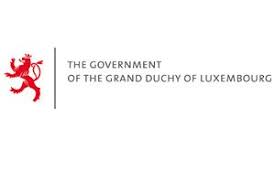
Georgia - Ministry of Finance disseminates Subnational Public Expenditure and Financial Accountability (PEFA) assessment reports for Martvili, Tbilisi, and Batumi
By Patrick Piker Umah Tete and Mariam Dolidze, World Bank Task Team Leaders
CONTEXT
At the request of the Ministry of Finance of Georgia, the European Union (EU) and the World Bank undertook the Public Expenditure and Financial Accountability (PEFA) assessments for the Cities of Tbilisi and Batumi and the Municipality of Martvili using the 2021 Guidance for Subnational PEFA Assessments. The purpose of the PEFA assessment is to provide an objective analysis of the present performance of the Public Financial Management system. These assessments in particular provide an update on the progress of PFM and a new baseline of performance in Georgia since the last assessments conducted in 2018.
These assessments become particularly important when government expenditure at the subnational level in Georgia is over five percent of GDP and accounts for almost a fifth of consolidated government expenditures in 2022. It is the local administrations in Georgia that are primarily responsible for critical services, including the provision of pre-school education, housing, utilities and communal services. The PEFA assessments evaluate the PFM systems in these municipalities and cities such that improvements can be made to ensure that resources are effectively and efficiently utilized.
PROCESS
These assessments were initiated on August 17, 2022 and finalized in November 2022. On February 23, 2023, the PEFA Secretariat confirmed with the official “PEFA CHECK” that all quality standards were met with regard to compliance with the methodology.
All three subnational assessments followed the publication of the central government of Georgia’s 2022 National PEFA assessment, including a Gender Responsive PFM Assessment Report (GRPFM) which was published December 20, 2022.

Georgia PEFA 2022 National | Georgia PEFA 2022 Gender |
The dissemination workshop of both Georgian assessments occurred on April 20, 2023 with attendance from the First Deputy Minister of Finance of Georgia Giorgi Kakauridze, Task Leaders Patrick Umah Tete and Mariam Dolidze (World Bank), as well as Miguel Eduardo Sanchez Martin, Program Leader at the World Bank. Speakers at the event included John Short, World Bank Consultant, Davit Gamkrelidze, Head of State Treasury Service and Giuli Chkuaseli, Head of Public Internal Control Department of the Ministry of Finance. Notable participants included Ekaterine Guntsadze, Deputy Minister of Finance of Georgia, Andria Basilaia, Deputy Mayor of Tbilisi and Irakli Khmaladze, Programme Manager for Economics, Regional Development and Public Finance at the Delegation of the European Commission Delegation to Georgia.
Representatives from both state agencies, international partners and the civil society were invited to the meeting.

Under the EU-funded portion of the project, the findings of the PEFA assessment of 18 local administrations in a PEFA Municipality Synthesis Report highlight the strengths and weaknesses of Georgia’s public finance systems. This synthesis report provides a solid basis for making recommendations to strengthen Georgia’s PFM Strategy and Action plans for 2023-2026. The 18 local governments that were assessed are Tbilisi, Batumi, Martvili, Akhmeta, Ambrolauri, Baghdadi, Chkhorotsku, Keda, Kharagauli, Tetritskaro, Khulo, Tsalenjikha, Vani, Dmanisi Lentekhi, Tkibuli, Tsageri, and Khelvachauri.
The European Union and the World Bank are grateful for the cooperation during the assessment to the Municipality of Martvili and Cities of Tbilisi and Batumi as well as State institutions led by the Ministry of Finance that participated in the assessment.
The reports used the Guidance for Sub-National PEFA Assessments that was created in 2021 and is drawn from international standards and good practices identified by experienced practitioners. The PEFA assessment reviews seven pillars of performance of a PFM system that includes: budget reliability; transparency of public finances; management of assets and liabilities; policy-based fiscal strategy and budgeting; predictability and control in budget execution; accounting and reporting; and external scrutiny and audit. These pillars are measured using 31 indicators that contain 94 dimensions. The PEFA Batumi, Martvili and Tbilis reports could be accessed clicking on the images.
RESULTS & LESSONS LEARNED
The 2022 Georgia National PEFA assessment showed that the country has improved its PFM systems compared to the previous PEFA 2018 assessment. When compared with 59 countries that conducted their assessments based on the 2016 PEFA methodology, Georgia was the leading country according to the 2022 PEFA Global Report. The 2021 Open Budget Survey that is conducted by the International Budget Partnership (IBP), also ranked Georgia first amongst 120 countries in budget transparency in the Open Budget Index.
Subnational level PFM systems are reflective of the progress made at the national level. The 2022 PEFA assessments for Tbilisi, Batumi, and Martvili, generally reflect improvements compared to their 2018 assessments. An analysis of the PEFA Municipality Synthesis Report also shows that progress has been made in the following areas: transparency of public finances albeit noting the need to improve public consultations on the budget; management of assets and liabilities; policy-based fiscal strategy and budgeting; predictability and control in budget execution; and accounting and reporting with the exception of the need to improve on submitting annual financial reports for audit. Areas of improvement include audit and scrutiny, and budget reliability; although COVID-19 may have had an impact on the budget’s credibility.
Read the full reports:
Tbilisi PEFA assessment Report and Summary
Batumi PEFA assessment Report and Summary
Martvili PEFA assessment Report and Summary
Municipality Synthesis Report
Other Links:
Ministry of Finance of Georgia
Guidance for Subnational Governement PEFA Assessments
Supplementary Framework for Assessing Gender Responsive Public Financial Management





